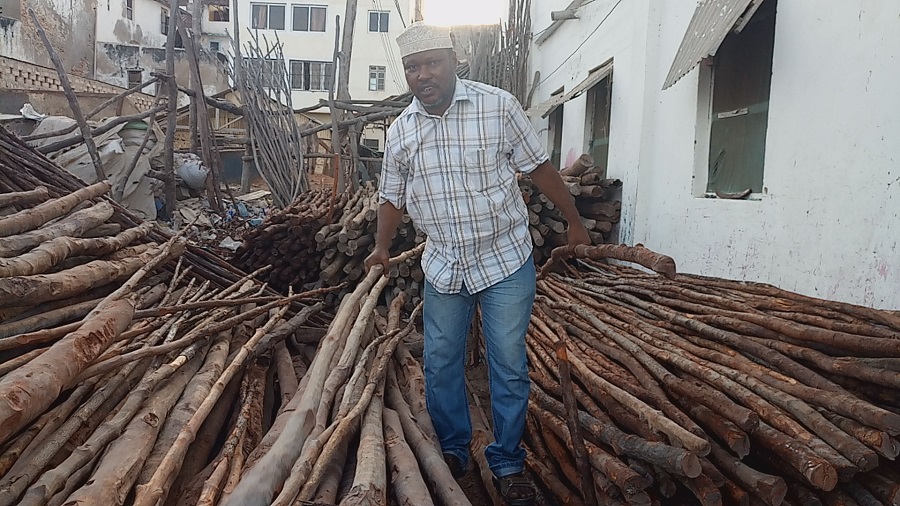
Lamu, KENYA: More than 30,000 families that depend on mangrove logging in Lamu County are seeking compensation from the national government over the ongoing logging ban.
The ban was announced by the deputy president William Ruto as a mitigation measure against the prolonged drought spells and water shortages in the country.
The mangrove loggers majorly concentrated in Lamu East sub-county are now claiming to have lost millions of shillings ever since the ban was introduced.
Thousands of residents of Ndau,Kiwayu,Faza,Kizingitini,Pate,Siyu,Manda and Lamu depend on the mangrove logging business for sustenance.
Many were forced into the business especially after their other sources of livelihoods that is fishing and tourism were badly affected by insecurity caused by frequent Al Shabaab attacks.
The mangrove cutters now want the government to compensate them for the time they will be out of the business so that they can move on with their lives or allow them to carry on with the logging.
Speaking in Lamu on Wednesday, the chairperson of the Lamu Mangrove Community Forest Association-CFA Abdulrahman Aboud said life had become tough for many since the DP announced the ban on logging.
Aboud said the business had lost more than Sh.16 Million in the last three weeks that the logging ban has been in effect.
He said it was unfair that the ban had to also affect mangrove cutters when they were not even part of the forest cover required to avoid drought and bring rain.
He said mangroves have nothing to do with the frequent drought spells that keep occurring in the country and as such, it was a punishment to keep them out of business for nothing.
Aboud said mangrove logging was the major source of livelihood for many residents especially in Lamu East and that such a ban would render many poor and force youth into crime for survival.
“Mangroves aren’t your normal forests.They have nothing to do with rain or drought like the other forests out there.Banning such a venture is meant to render of 30,000 people with a means of survival.We have already lost Sh.16 Million and that figure grows daily.In the next three months, we will have lost Sh.50 Million just because of the ban.That’s why they must pay us for all that time and losses,” said Aboud.
Aboud said the government has two options of either compensating them for all the time they will be out of business because of the ban or allow them to carry on with the venture.
Fatma Fankupi said through the mangrove logging business she has been able to send her kids to school but that things have changed since the ban was imposed since she can no longer afford to keep them in school again.
“This a business I inherited from my late father who also inherited it from his forefathers.It’s not illegal to do mangrove logging as its harmless.Why would the government wake up and ban such an innocent venture?My kids can’t stay in school as ii have not a single penny to pay their fees with.They must allow us to carry on, they must,” said Fatma.
Abdalla Abushiry says many the venture had employed many jobless youths who had completed their studies but had no jobs and wondered what would happen to them with the ban in place.
Abushiry warned that such a ban would easily bring about increased crime and even radicalization since many youth who were in the business will now be idle.
“Mangrove logging had employed hundreds if not thousands of youth here something the government has failed to do.Where do they go from here now that business has been closed.Would you blame them if they turn to crime to survive?Let them the government provide a clear compensation plan so that lives don’t suffer,” said Abushiry.
This comes a day after Lamu East MP Athman Shariff gave the government a 14-day ultimatum to lift the mangrove logging ban in the region failure to which they shall take drastic measures that include heading to court over the issue.












